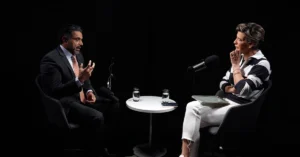ⓘ Image Credits: Photo by Jad El Mourad from Pexels
The Kingdom of Saudi Arabia (KSA) has recently amended rules on imports from other Gulf Cooperation Council (GCC) countries. The new rules exclude goods made in free zones and goods made using Israeli input from preferential tariff concessions. According to a report published on Reuters, Saudi Arabia’s amendment is taken into effect in a move to challenge the UAE that holds the status of GCC’s ideal trade and business hub.
Saudi Arabia is seeking to attract investments and businesses to expand its economic landscape – reducing its dependency on oil and creating new jobs for its citizens.
As an outcome of the new import rules, Saudi Arabia will exclude from the GCC tariff agreement goods made by companies with a workforce made up of less than 25% of local people and industrial products with less than 40% of added value after their transformation process.
Free zones majorly drive UAE’s economy and allow foreign investors and business owners to take 100 percent ownership of the businesses. The ministerial decree published on the Saudi official gazette Umm al-Qura said all goods made in free zones in the region will not be considered locally made.
Also, the goods that contain components made or produced in Israel or manufactured by companies owned fully or partially by Israeli investors or by companies listed in the Arab boycott agreement regarding Israel, will be disqualified.
It is notable that Saudi’s decree goes in opposition to the UAE as it has normalised relations with Israel last year and also signed a tax treaty with Israel in May. Bahrain on the other hand has also normalised ties with Israel last year.
On course of the import rules amended by Saudi Arabia, Nasser Saidi, a Dubai-based economist in a statement said,
“The original customs union agreement, established Jan 2003, no longer serves the needs of the GCC countries … including Saudi and the UAE and in light of the increased competition between the two countries pursuing similar non-oil diversification activities,”
Saidi added,
“The current dispute, while disruptive in the short-term, can open the door to a more efficient, modern, trade and investment framework and agreement that would boost growth prospects and allow for greater diversification, higher value-added regional trade,”






